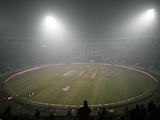A court in Delhi rejected a wife's application for interim monetary relief under the Protection of Women from Domestic Violence Act, saying she was highly qualified and capable of finding a source of income and allowing her maintenance would promote idleness and dependency on the husband.
Metropolitan Magistrate Swayam Siddha Tripathy was hearing an application filed by the wife under the act seeking interim maintenance of Rs 50,000 per month.
"The complainant (wife) is highly qualified and capable of finding a source of income for herself and allowing maintenance will only promote idleness and dependency on the husband. Therefore, I am not inclined to grant any maintenance in view of her capacity to earn," the magistrate said.
Underlining that the wife's right to receive maintenance from the husband was not "absolute", the court said the wife had to show her inability to sustain, survive, and manage even the basic necessities, besides establishing that the husband was earning and having a better lifestyle, while the wife was left fending for herself.
"The complainant has to prove that either she is not earning or her income is not sufficient to maintain the same standard of living which was provided to her in the matrimonial house," the court said.
It noted that in the present case, though the wife was an MBA graduate, qualified at par with her husband, and able-bodied, she did not choose to seek a job.
The court also noted that the husband, a qualified doctor, was presently unemployed and said he was not living a luxurious life.
"Thus, both the complainant and her husband are capable of earning but are not employed. Therefore, this argument (of not having any income) cannot be used against one unemployed spouse for providing maintenance to the other unemployed spouse," the court said.
It said the wife was unable to show that she was provided with a better standard of living at the matrimonial house and her existing "family status" did not make it believable that if maintenance was not provided, she would be reduced to destitution or vagrancy.
Referring to a 2001 judgement of the Delhi High Court, the magistrate said that principles of equity must be applied in cases of maintenance.
"Equity means fairness and evenness and it cannot be applied solitarily upon the aggrieved wife. In absence of any dependent, either of the qualified spouses cannot be made responsible for the other's well-being considering that neither of them is on the verge of destitution," the magistrate said.
The court also said that the wife was from a "well-to-do family" and also received compensation from her first husband.
(Except for the headline, this story has not been edited by NDTV staff and is published from a syndicated feed.)















